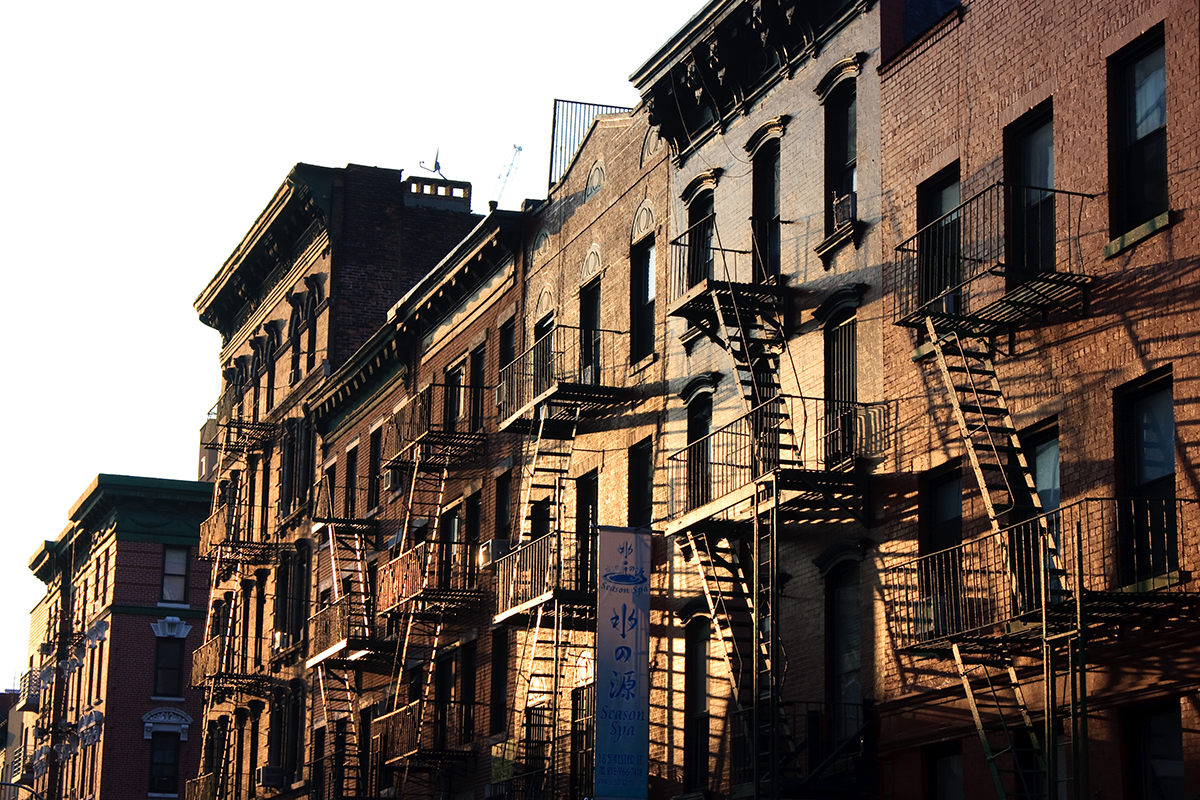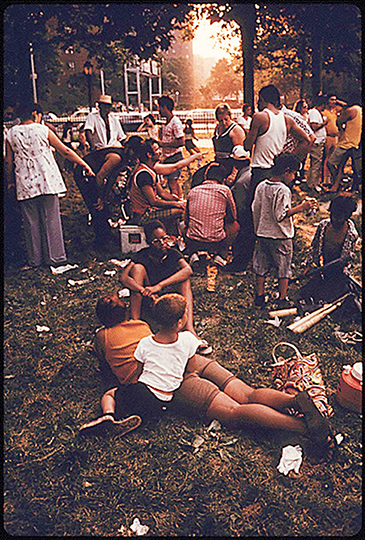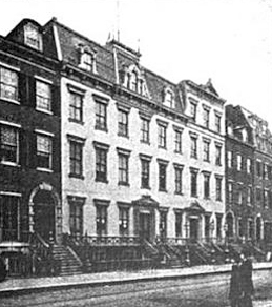
Forefront is an annual program led by the Urban Design Forum dedicated to cultivating emerging leaders in urban design, development and policy.
Each year, the Forum invites 20 individuals under the age of 40 to become Forefront Fellows. Fellows meet monthly to investigate critical issues facing New York City, develop design projects and policy papers, and receive feedback from their peers and established leaders in the field.
In addition, Forefront Fellows enjoy two years of Forum membership, with benefits such as invitations to exclusive roundtables, tours and dinners in New York City; a monthly bulletin of Fellows’ news and updates; and unparalleled access to our global network of leading urbanists.

People relaxing in East River Park in 1974. Photo credit: Wikimedia Commons.
Program Theme ↓
Design for Arrival explores how urban design, development and technology can strengthen historic and emerging immigrant communities in New York City. Forefront Fellows will explore key questions such as:
- What is the role of cities in attracting and protecting new immigrant communities?
- What innovative design solutions offer greater affordable housing for new immigrant families?
- How can the design of the built environment foster greater immigrant entrepreneurship?
- How can government agencies utilize technology to better serve immigrant populations?
- How can we improve transportation networks to better connect growing neighborhoods?
- How can we ensure equitable access to healthy parks, libraries, and other public spaces for immigrant communities?
Fellowship Structure ↓
Cohort Programs:
Each month, Forefront Fellows gather for site visits and dedicated conversations with civic leaders on the relationship between New York City’s built environment and immigrant communities.
Small Group Inquiry:
In small groups, participants will investigate an issue relating to immigration and the built environment in depth. Groups will review research and case studies, interview stakeholders, and plan a site visit and evening program for the Fellows.
Culminating Project:
Each team will produce a culminating group project that offers an innovative solution to an issue facing an immigrant community in New York City. Each project will be featured on the Urban Design Forum website for our network of Fellows and civic leaders throughout the metropolitan area.

Arlington Hall, a community hall and ballroom for the German immigrant community of Little Germany in the Lower East Side, c. 1892. Credit: Wikimedia Commons.
Program Schedule ↓
Friday, April 14, 2017
Application Deadline
Early May 2017
Announcement of 2017 Class of Forefront Fellows
May 23, 2017
Orientation + Reception
June 2017 – March 2018
Design for Arrival programs
April 2018
Celebration + Publication
Who Should Apply ↓
Forefront Fellows are architects, landscape architects, community advocates, planners, developers, public officials, civic leaders, UX designers, scholars and journalists under the age of 40 who are advancing dynamic, equitable and resilient cities. Meet the 2016 class of Forefront Fellows.
The Forefront initiative reflects the Forum’s commitment to promoting the achievements of traditionally underrepresented groups in planning and design; women, people of color, and professionals with experience in diverse community settings are strongly encouraged to apply.
Candidates for the class of 2017 must be under the age of 40 as of December 31, 2018, and live or work in the 5 boroughs of New York City to be considered for the Forefront Fellowship.
Application Materials ↓
- Fellowship Application
- CV
- Headshot photo (min. 250 x 250 px)
- Statement of Interest
In 500 words, candidates should discuss their interest in participating in the Forum’s activities, their recent work and research that demonstrate their commitment to building equitable cities, and their interest in exploring the relationship between the built environment and immigrant communities. - Letter of Nomination
In 500 words, nominating letters should address candidates’ contributions to the fields of urban design, planning, policy, advocacy, and development; promise of future achievement; and potential contributions to the work of the Forum.
Candidates are strongly encouraged to seek a letter of nomination by a current Fellow of the Urban Design Forum. Candidates without a Fellow nomination are welcome to submit a professional or academic recommendation.
Image Credit: Chinatown Fire Escapes. Lassi Kurkijärvi, Flickr.